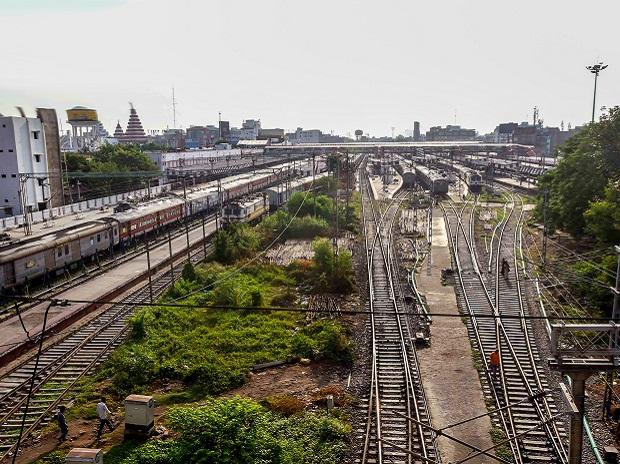The country is on course to build more national highways and rail lines during the decade ending 2025 than it has cumulatively done between 1950 and 2015, a report said on Wednesday.
The total length of national highways is expected to reach 1.8 lakh kilometres, while that of the railway lines 1.2 lakh kilometres by 2025, Bank of America Securities India said in a report.
Between 1950 and 2015, the nation built only 4,000 kilometres of national highways, taking the total length to 77,000 kilometres in 2015. However the highway length is on course to cross 1.8 lakh kilometres by 2025 — more than double the existing length — in ten years time.
When it comes to the rail network, the nation had only 10,000 kilometres of rail lines in 1950, which rose to 63,000 kilometres in 2015. But it is slated to touch 1.2 lakh kilometres in 2025, the report said.
The port capacity which was only 777 MTPA in 1995 rose to 1,911 MTPA in 2015 and is on course to more than double to 3,000 MTPA by 2025, it said.
The country has been rapidly augmenting transportation and basic infrastructure capacity across sectors such as highways and railways since 2015.
Basic infrastructure like sanitation access has touched 89 per cent of the population in 2021 from 43 per cent in 2015; cooking gas coverage reached 100 per cent in 2021 from 56 per cent in 2015; 96 per cent households have electricity access now up from 56 per cent in 2000; tap water coverage is 52 per cent now from 13 per cent in 2015 and is likely to be 100 per cent coverage by 2024; piped gas connections is at 10 million now from 2.5 million in 2015; and affordable rural housing is at 25 million now up from 1 million in 2015, the report said.
On the de-carbonisation front, the report said that the country will be spending USD 385 billion over 2015-30 just to meet its 2030 de-carbonisation goals, which will accelerate materially over time and help it transition to the net-zero goal by 2070.
On the financial front, and financial digitisation front, the report said bank account penetration has reached 80 per cent now from 35 per cent in 2011.
“We see the 2015 Paris agreement as an inflection point in our efforts towards de-carbonisation. In fact, we are leading the de-carbonisation efforts globally in spearheading the International Solar Alliance; pace of execution — the fastest transition globally from Euro IV to VI norms and is on track to exceed its Paris agreement targets for 2030; and pollution norms stringency for gensets and energy efficiency norms for ACs are likely to be most stringent globally,” the report said.
The rapid de-carbonisation will also lead to a cut in diesel intake as natural gas will constitute 15 per cent of the energy mix and ethanol blending in petrol will touch 20 per cent from 5 per cent now by 2030, up from 6 per cent in 2021; renewable capacity will reach 450 gw by 2030 from 101 gw in 2021.
The report sees all these leading to a capex of USD 385 billion and 106 GW energy savings and 1.1 billion tonne per annum CO2 reduction by 2030.
(Only the headline and picture of this report may have been reworked by the Business Standard staff; the rest of the content is auto-generated from a syndicated feed.)
 Dear Reader,
Dear Reader,
Business Standard has always strived hard to provide up-to-date information and commentary on developments that are of interest to you and have wider political and economic implications for the country and the world. Your encouragement and constant feedback on how to improve our offering have only made our resolve and commitment to these ideals stronger. Even during these difficult times arising out of Covid-19, we continue to remain committed to keeping you informed and updated with credible news, authoritative views and incisive commentary on topical issues of relevance.
We, however, have a request.
As we battle the economic impact of the pandemic, we need your support even more, so that we can continue to offer you more quality content. Our subscription model has seen an encouraging response from many of you, who have subscribed to our online content. More subscription to our online content can only help us achieve the goals of offering you even better and more relevant content. We believe in free, fair and credible journalism. Your support through more subscriptions can help us practise the journalism to which we are committed.
Support quality journalism and subscribe to Business Standard.
Digital Editor



 Dear Reader,
Dear Reader,

GIPHY App Key not set. Please check settings